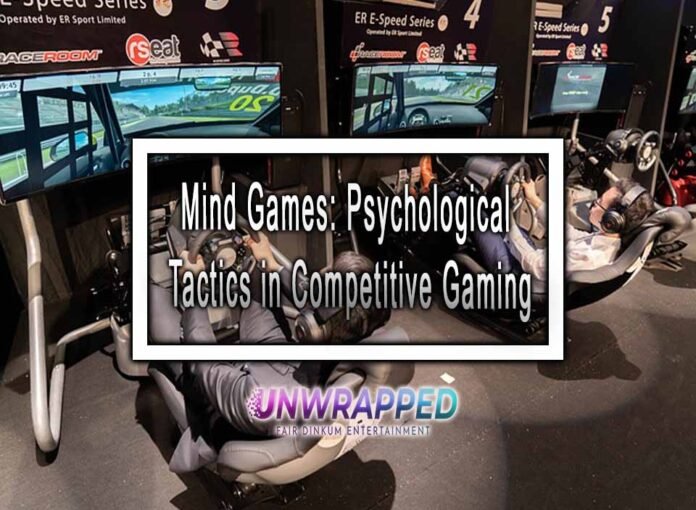In the realm of competitive gaming or eSports, victories are not solely achieved through physical finesse or technical brilliance. Often overlooked but undeniably influential, the psychological aspects of gameplay hold a significant role in a competitor’s arsenal. While it is widely recognized that proficiency in hand-eye coordination and strategic understanding is crucial, the ability to wage a psychological war against one’s opponent can ultimately be the deciding factor. Let us delve into how mental prowess shapes success in competitive gaming.
The Power of Intimidation
In the heat of competition, projecting an air of supreme confidence can be daunting to opponents. This tactic relies on occupying the psychological space of your rivals by demonstrating extreme assurance in your skills and actions. While maintaining a clinical approach is crucial, showcasing swift execution of strategies, flaunting superior skill sets, or even engaging in good-natured but strategic trash talking can greatly unsettle a less experienced or psychologically vulnerable opponent. This psychological oppression can force competitors to second-guess their tactics and make costly errors.
Strategic Disinformation
Strategic disinformation is a commonly used psychological tactic in competitive gaming. It involves deceiving opponents regarding your strategy, intention, location, or abilities. This clever maneuver can be especially effective in strategy and nz online slots where misleading cues can lead to misinterpret your actions. By disrupting their strategic planning and prompting hasty decisions, this approach can be exploited to gain an advantage over your adversaries.
Emotional Intellect: Gauging and Exploiting Emotional Triggers
Emotional intellect, although traditionally misunderstood as less important in a gaming scenario, plays a significant role in competitive gaming. Recognizing an opponent’s patterns, predicting stress points, and understanding their emotional triggers can provide a potent advantage. Gamers who lose their emotional equilibrium often end up making rushed and hasty decisions, providing an edge to the adversary who remains under composure.
Endurance: The Long Game
Competitive gaming matches, particularly those in MOBAs or strategy competitions, can stretch on for hours. Consequently, mental endurance becomes crucial. Mastering the psychological aspect of the contest requires fostering patience and resilience while maintaining unwavering attention and focus, even as fatigue builds up. As some players may grow impatient or lose concentration over time, the ability to effectively manage fatigue grants a significant advantage during the final phases of the game.
The Art of Comebacks: Creating Pressure
When leading in a game, individuals experience a unique psychological pressure. As the game reaches its end, the team or player in the lead tends to adopt a more cautious approach due to the fear of sudden change. Exploiting this situation, the trailing team can apply additional pressure by employing drastic strategy changes or taking daring actions. This abrupt shift catches the leading player off guard and creates an opportunity for an exhilarating comeback, shattering their opponent’s confidence.
Conclusion
In summary, competitive gaming shares similarities with traditional sports by being a battleground where mental prowess is just as crucial as physical skills. The psychological aspect of gameplay includes strategic intimidation, disinformation, emotional manipulation, endurance, and the ability to handle pressure. These elements intertwine with reflexes and experience to form a complex web of tactics in the world of competitive gaming. Mastering these mind games not only improves performance but also establishes individuals as formidable and influential forces within this realm.











